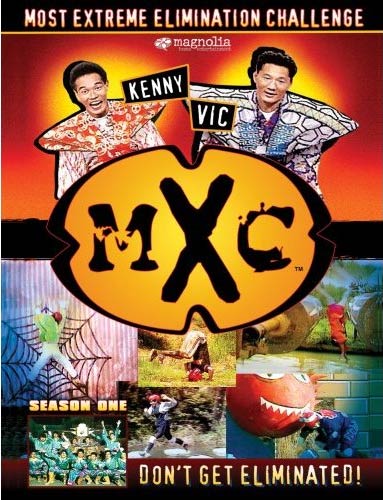MSN Encarta defines Reality television as:
Reality TV
re·al·i·ty TV
noun
Definition:
TV show observing real-life situation: television programs that present real people in live, though often deliberately manufactured, situations and monitor their emotions and behavior.
I remember being fascinated by survivor when it debuted. This fascination however, did not include watching the show. In fact, I have only ever seen two episodes. I have seen the finale of the inaugural season, and I once sat through an episode with my grandparents, nice people who swear by three things:
1. Blue paint, preferably stored in open containers in large amounts inside a basement dug out underneath their house via shovel
2. The Fox News Channel (did you know that they report and you decide, Eric?)
3. Survivor, and other reality television shows
The dynamic and motives of the contestants who clamor to appear on reality shows are of interest, but what initially fascinated me about reality television were the people who watched it, talked about it, and got emotionally involved with the contestants. Additionally, I was intrigued by what seemed to be the explosive popularity of watching others duke it out to stay on an island, marry a millionaire they've never met before, make a fool of themselves singing for music execs, or eat...well...things Joe Rogan hands to them.

So, why do we watch? What is the thrill, the attraction of watching other people?
In her academic paper entitled "Toward A Sociology of Reality Television" Beth Montemurro says:
"Reality shows often cast relatively diverse groups with the intention of seeing whether conflict or harmony will result. Success in reality competitions is often achieved through the development of alliances and strategic relationships and the process by which these unions form can be sociologically fascinating to watch."
Essentially she postulates, as several others do, that we watch for the competition and conflict.
But that does not explain the proliferation of what I can only call "train-wreck" television. People and actions society can gawk at.
In the book Reality TV, Remaking Television Culture by Susan Murray and Laurie Ouellette, this trend is discussed:
"More recently, a subgenre has developed that trots out minor celebrities and has- beens that come cheap to endure humiliating tests of there mettle, fighting each other in Celebrity Boxing or plunging themselves into vermin on Celebrity Fear Factor."
This means Whitney Houston calling for BOBBY!!! This means Tanya Harding hopping in a Boxing Ring.
It's not just celebrities going on these shows however. And it is definitely not celebrities comprising the majority viewership.
One of the greatest culture shocks I think I've ever experienced has to be my introduction to a favorite viewing pastime of my generation. And ironically, considering the editorial topic of the week, a viewing experience that could only be enhanced with use of cannabis. The Most Extreme Elimination Challenge. Which, until last September I mistakenly called "The Most Extreme Malaysian Challenge."

I always think that the line has been pushed to the limit that society will tolerate. I am always wrong.
Reality Show Link:
Okay so that was not real. But this is.
Contestants to Vie for Kidney on Reality Show
All the world is a stage. Maybe current society has taken that line from Shakespeare to heart and believes that we all are entitled time in the spotlight.
"Surveillance-based reality television has emerged as a resurgent programming genre in the US and Western Europe... Surveillance is portrayed not as a form of social control, but as the democratization of celebrity..." Mark Andrejevic.
In a sense, according to Andrejevic maybe nowadays we want Big Brother watching us.
I knew someone that was asked to be on a reality show and learning the terms that went along with it he did not. The one term that shocked me (and Im not sure why) was that under no conditions were you allowed to discussed what really happened during the show, no matter how they edited it.
ReplyDeleteI think you could have used more hyperlinks. For instance, whenever you refer to a book, study or paper, you should hyperlink to the source if possible.
ReplyDelete